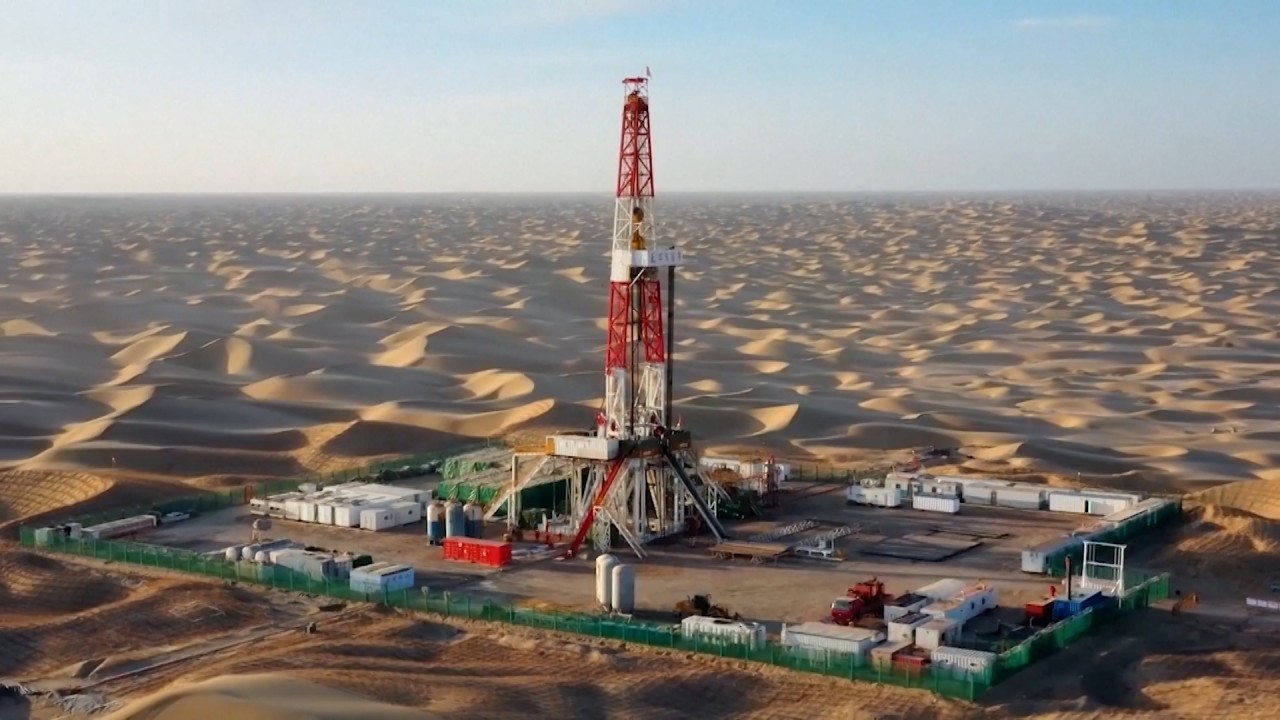
Putin needs help from China and India on oil Europe does not want as EU set to ban 90% Russian imports
- In the most significant effort yet to punish Russia for its war in Ukraine, the European Union agrees to ban most Russian oil imports
- Russia’s flagship Urals crude – an oil brand popular in Europe – needs specific refineries to process it, which other Asian countries lack
President Vladimir Putin may need to count even more on China and India should the European Union ban Russian oil, with few other takers in Asia able to process the type of crude Europe typically buys.
EU leaders agreed to pursue a partial embargo on Russian crude oil shipped on sea, potentially costing Putin up to US$10 billion a year in lost export revenue.
Though that could eventually leave more of Russia’s flagship Urals crude – an oil brand that had been popular in Europe – needing a new home, there will be limited buyers in Asia. That’s because the grade can’t easily be refined in large quantities in countries such as Sri Lanka and Indonesia that don’t have sophisticated processing and blending capabilities to handle the highly sulphuric type of oil, said traders.
That could lead China and India, which do have refineries that can process Urals, to pick up extra barrels. With Shanghai emerging from its months-long lockdown, Chinese state-owned and private refiners may have a renewed appetite to buy more from Russia, the traders said.
However, there is likely to be a limit on how much China and India can realistically buy too, with the two countries already mopping up record amounts of Russian oil that’s steadily been shunned by Europe since the invasion of Ukraine.
China state oil refiners ‘cautious’ of new Russian oil as sanctions mount
In the most significant effort yet to punish Russia for its war in Ukraine, the European Union agreed to ban the overwhelming majority of Russian oil imports after tense negotiations that exposed the cracks in European unity.
From the moment Russia invaded on February 24, the West has sought to hit Moscow’s lucrative energy sector to cut off funding for its war. But any such move is a double-edged sword, especially in Europe, which relies on the country for 25 per cent of its oil and 40 per cent of its natural gas. European countries that are even more heavily dependent on Russia have been especially reluctant to act.
In a move unthinkable just months ago, EU leaders agreed late Monday to cut around 90 per cent of all Russian oil imports over the next six months.
In response to the EU’s decision, Mikhail Ulyanov, Russia’s permanent representative to international organisations in Vienna, took to Twitter, saying: “Russia will find other importers.”
Russia has not shied away from withholding its energy supplies, despite the economic damage it could suffer as a result. And Russian energy giant Gazprom announced it would cut natural gas supplies to Dutch trader GasTerra on Tuesday and it is considering cutting off Denmark. It’s already turned the taps off in Bulgaria, Poland and Finland.
Dutch trader GasTerra said the move was announced after it refused Gazprom’s “one-sided payment requirements.” That’s a reference to Russian President Vladimir Putin’s demand that European nations pay for gas in roubles – an arrangement many have refused. GasTerra said homes would not be hit as it had bought gas elsewhere in anticipation of a shut-off.
Talks at EU headquarters in Brussels were set Tuesday to focus on ways to end the trading bloc’s dependence on Russian energy, by diversifying supplies and speeding up the transition to renewable sources and away, as much as possible given recent price hikes, from fossil fuels.

The oil embargo, tied up in a new package of sanctions that will also target Russia’s biggest bank and state media outlets accused of spreading propaganda, covers crude oil and petroleum products but has an exception for oil delivered by pipeline.
Hungarian Prime minister Viktor Orban made clear that he could only support the new sanctions if his country’s oil supply security was guaranteed. Hungary gets more than 60 per cent of its oil from Russia and depends on crude that comes through the Soviet-era Druzhba pipeline.
The EU estimated that could mean around 90 per cent of Russian oil – most it brought into Europe by sea – is banned by the end of the year. As part of the measure, Germany and Poland agreed to stop using oil from the northern branch of the Druzhba pipeline.
The sanctions package must still be finalised in coming days. The leaders reached their compromise after Ukrainian President Volodymyr Zelensky urged them to end “internal arguments that only prompt Russia to put more pressure on the whole of Europe.”



